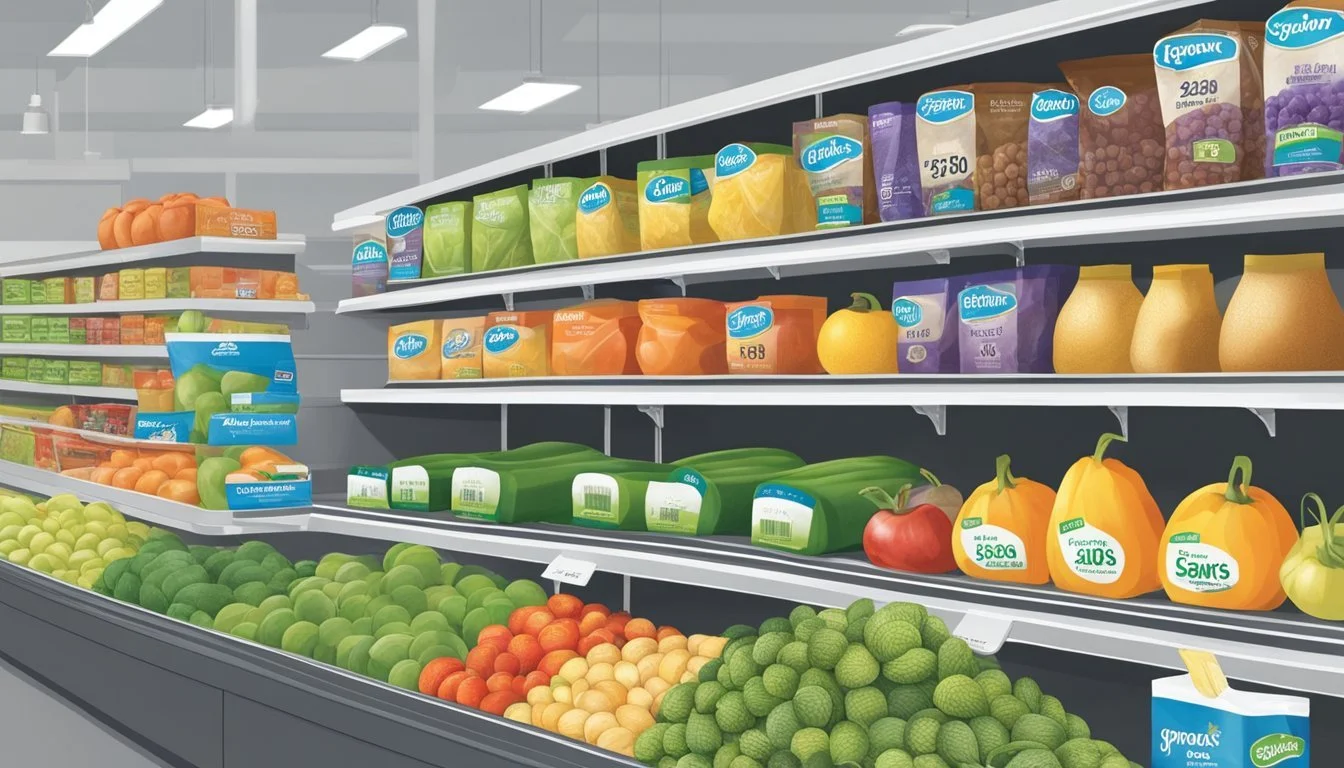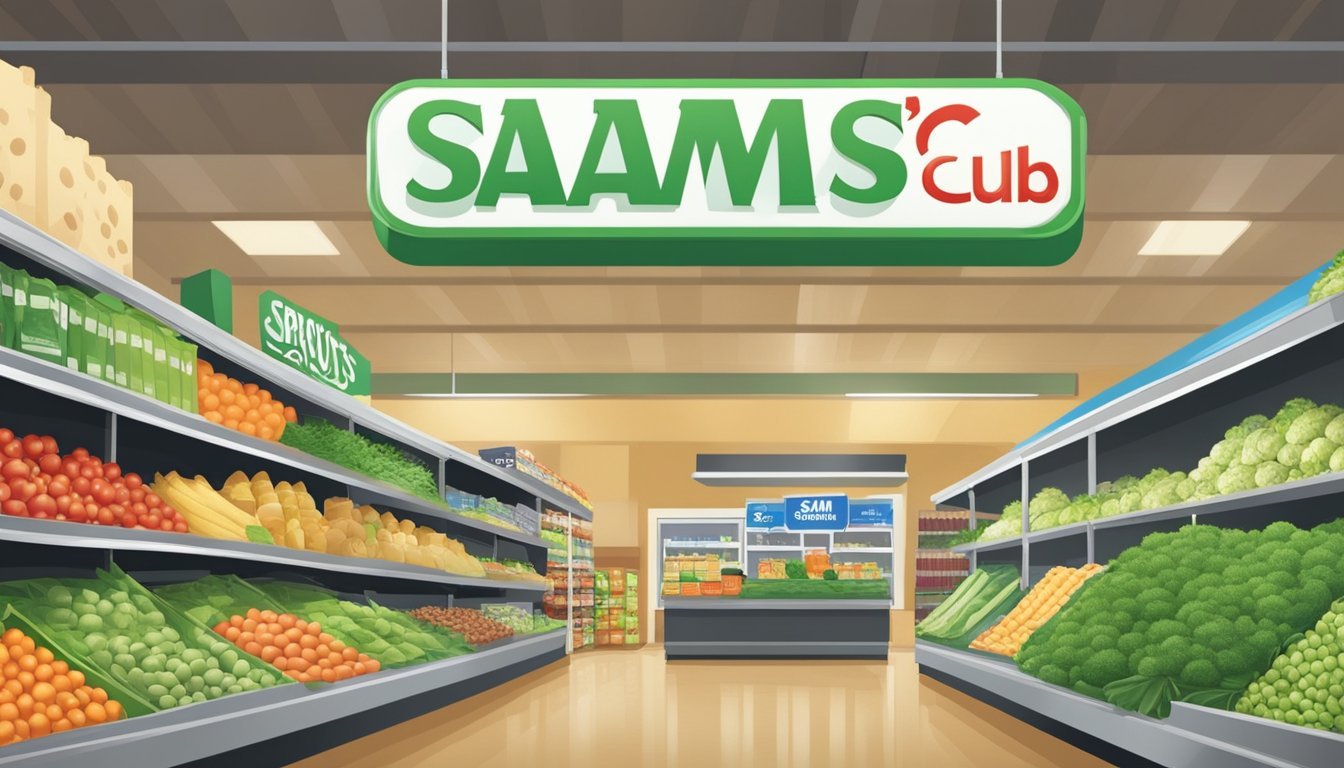Is Sam's Club Cheaper Than Sprouts?
Comparing Bulk and Specialty Grocery Prices
Part of Our Grocery Store Guide with Details on Sam's Club Prices and Sprouts Farmers Market Prices
When it comes to grocery shopping, consumers are always on the lookout for the best deals to stretch their dollar further. Sam's Club, a subsidiary of retail giant Walmart, is renowned for offering a wide range of products at lower prices due to its warehouse club model that allows for bulk purchasing and lower overhead costs. The savings at Sam's Club can be substantial, especially when compared to conventional grocery stores. The club's model emphasizes value on numerous items, from pantry staples to electronics, making it a one-stop shop for many.
On the other hand, Sprouts Farmers Market positions itself as a health-oriented supermarket, featuring fresh produce, organic options, and a variety of specialty health products. While Sprouts often highlights quality and health benefits, it may not compete on price alone, especially for consumers seeking the lowest possible prices for their groceries. Although Sprouts provides a unique shopping experience with an emphasis on healthy living, budget-conscious shoppers might find that Sam's Club offers better value for everyday items.
A price comparison between these two retailers yields interesting insights. Bulk purchases at Sam's Club tend to come with lower unit prices, making it a more economical choice for families and those who have the space to store large quantities. In the case of Sprouts, while certain deals may be found, the focus remains on curated choices and specialty products geared towards health and wellness, which could mean a higher cost for consumers not primarily purchasing in bulk. It is crucial for shoppers to consider their buying habits and preferences when choosing between Sam's Club and Sprouts, as the best value is determined as much by individual needs as it is by price tags.
Understanding Warehouse Clubs and Specialty Grocers
In exploring the pricing differences between warehouse clubs and specialty grocers, it's crucial to recognize their distinct business models. Warehouse clubs, like Sam's Club, operate on a membership basis and typically offer a wide range of products in larger quantities at lower prices. On the other hand, specialty grocers, such as Sprouts, focus on health-conscious foods and typically provide a different shopping experience with an emphasis on fresh, organic, and specialty items.
What Is Sam's Club?
Sam's Club is a membership-only warehouse club owned by Walmart Inc. It provides a variety of bulk groceries and household goods at wholesale prices. Members pay an annual fee to access these discounted prices. Sam's Club operates nearly 600 locations across the U.S. and Puerto Rico, leveraging Walmart’s extensive buying power to offer competitive pricing.
Membership: Required for purchase
Product Focus: Bulk groceries, electronics, furniture, and more
Locations: Extensive nationwide presence
What Is Sprouts?
Sprouts is a specialty grocery store chain that emphasizes natural and organic foods. Without requiring a membership, Sprouts offers customers health-focused products including fresh produce, bulk foods, vitamins and supplements, packaged groceries, meat and seafood, and baked goods.
Membership: Not required
Product Focus: Health-conscious and organic offerings
Store Experience: Focus on fresh and specialty items
Membership Requirements and Fees
In exploring the cost-effectiveness of shopping at Sam's Club versus Sprouts, one must consider the membership requirements and fees associated with Sam's Club and the open-market nature of Sprouts.
Sam's Club Membership Options
Sam's Club offers two main types of memberships: the standard Club Membership and the premium Plus Membership.
Club Membership:
Cost: $50 per year
Benefits: Includes access to all warehouse locations, tire and battery services, and eligibility for the Sam's Club Mastercard
Plus Membership:
Cost: $110 per year
Benefits: Comprises all the Club level benefits plus additional perks such as 2% cash-back on qualifying purchases, free shipping on most items, and earlier shopping hours.
It's important for consumers to calculate their potential savings and usage to determine if the Plus Membership's higher fee aligns with their shopping habits and needs.
Sprouts’ Market Accessibility
Sprouts Farmers Market operates on a different model with no membership fee required. Shoppers have:
Accessibility: Open to the public without any membership requirements
Pricing: Operates on a pay-as-you-go basis, where prices are set per item and occasional store promotions may offer discounts
Sprouts' focus on natural and organic products positions it uniquely against membership-based wholesale clubs, catering to a different market segment. Consumers have unrestricted access to purchase goods at Sprouts, contrasting with Sam's Club's members-only policy.
Product Range and Quality Comparisons
In comparing Sam's Club and Sprouts, it is essential to examine their product offerings, with a focus on diversity, organic options, and overall quality.
Diversity of Products at Sam's Club
Sam's Club is known for its wide array of products, ranging from essentials to electronics. Members can find an extensive selection of items, including but not limited to:
Bulk groceries: Offering a variety of packaged foods and beverages.
Clothes: A range of apparel for men, women, and children.
Electronics: An assortment of latest gadgets and home appliances.
It's important to note that Sam's Club excels in providing an assortment of products under one roof, catering to a multitude of shoppers' needs.
Organic and Natural Focus at Sprouts
Sprouts Farmers Market specializes in fresh, natural, and organic products. Their emphasis is especially strong in the following categories:
Produce: A robust selection of organic fruits and vegetables.
Essentials: Natural and eco-friendly personal care and cleaning products.
They offer a tailored experience for consumers seeking health-conscious options, with a spotlight on nutrition and wellness.
Quality Assessment
When it comes to quality, both Sam's Club and Sprouts offer high standards for their products. However, their areas of focus differ:
Sam's Club: They provide reliable quality across a vast range of goods, from electronics to everyday household items.
Sprouts: They are reputed for high-quality produce and organic goods, attracting a niche market dedicated to healthy living.
While Sam's Club provides quality merchandise across various categories, Sprouts zeroes in on premium, organic, and natural products.
Analyzing Price Points
In determining which retailer offers the best value, it’s essential to compare Sam's Club and Sprouts across different pricing strategies, including everyday prices, unit pricing considerations, and the availability of discounts.
Everyday Prices at Sam's Club vs. Sprouts
Sam's Club, known for its members-only warehouse shopping model, traditionally offers lower prices on a wide variety of items due to the bulk selling approach. In contrast, Sprouts Farmers Market, with a focus on healthful and organic offerings, may have higher everyday prices especially on organic produce. Consumers can expect savings on many items at Sam's Club when compared to Sprouts, as bulk purchasing typically reduces the cost per unit.
Bulk Buying and Unit Pricing
When assessing the value of bulk buying at Sam's Club, it's clear that unit prices—the cost per ounce, gram, or item—often reveal the deepest savings. Sam's Club’s larger package sizes can provide lower unit costs to customers willing to buy in greater quantities. In contrast, Sprouts does not focus on bulk sales; it prioritizes a different market segment that may not benefit from the same scale of bulk discounts.
Comparing Discount Opportunities
Sam's Club members may have access to various discount opportunities including special member-only pricing and periodic promotions, which can result in substantial savings on top of already lower prices. While Sprouts also offers sales and promotional discounts, the nature of these may be different and focus more on specific product categories such as organic produce. As both retailers offer unique savings opportunities, consumers must consider their shopping priorities when seeking the best price.
Shopping Experience and Services
Sam's Club and Sprouts each offer unique shopping experiences and services tailored to their customer base. Both aim to streamline shopping and provide added value through various in-store services.
Convenience Features
Sam's Club provides customers with a Scan & Go feature through its mobile app, allowing them to scan items and pay directly from their phones, thereby skipping the checkout lines. This feature demonstrates a commitment to expedience and efficiency within its store experience. Sprouts, a smaller grocery chain, may not offer the same technology, but it focuses on a straightforward, easy-to-navigate store layout that prioritizes fresh, organic, and healthy products.
Sam's Club: Scan & Go technology, Membership-based entry
Sprouts: Easy-to-navigate store layout, Health-centric product arrangement
In-Store Services
Both retailers offer a range of in-store services, but their focus differs. Sam's Club includes a pharmacy where customers can fill prescriptions, receive immunizations, and perform health screenings. In comparison, Sprouts tends to offer more specialized services catering to health and wellness, such as extensive bulk food options, including organic and non-GMO products.
Sam's Club: Full-service pharmacy, Optical center, Tire and battery center
Sprouts: Bulk foods section, Specialized health and wellness products
Calculating Savings and Budget Impact
When comparing Sam's Club and Sprouts, one must consider the potential savings and the impact on one's budget from shopping at these stores. The focus here is specifically on the financial aspects of shopping in bulk at Sam's Club versus the offerings at Sprouts.
Budgeting for Bulk Purchases
At Sam's Club, shoppers often find savings when buying items in larger quantities, a shopping method that requires careful budgeting. Bulk purchases can lead to a lower cost per unit but may also entail a higher upfront expenditure. It is crucial to:
Ensure the shopping list contains only necessary items.
Compare the cost per unit or ounce when shopping.
Consider storage space to prevent waste.
This approach may not always align with the smaller packaging options offered at Sprouts, where shoppers might prioritize different budget-friendly strategies.
Assessing Overall Savings
To assess overall savings, shoppers should:
Analyze their shopping list and cross-reference prices between Sam's Club and Sprouts.
Identify which store offers the better deal on specific items by considering price per quantity and quality of the product.
For instance, Spices may be cheaper in the bulk spice section at Sprouts, yet one should calculate the price per ounce to decide on the most cost-effective option. Sam's Club, with its ties to Walmart's extensive buying power, often provides substantial savings for items purchased in bulk. Shoppers should utilize a calculator to ensure they are indeed saving money when accounting for the quantity they are receiving.
Comparative Analysis of Member Benefits
In evaluating Sam's Club and Sprouts, one notes distinctions in membership dynamics that influence the shopping experience, cost savings, and member rewards.
Exclusive Deals and Member Rewards
Sam's Club members can capitalize on various deals and rewards, a result of purchasing a membership. For example, Sam's Club Plus members receive 2% back on qualifying purchases which can translate to significant savings over time. In comparison, Sprouts does not operate a wholesale membership model, thus, it does not offer similar type of savings or cash back rewards tied to a membership. Sprouts does provide special sales and promotions to all of its customers, which can result in savings, but these are not exclusive to a membership program.
Deal Highlights for Sam's Club Members:
Instant Savings: Time-limited discounts on a variety of products.
Cash Rewards: For Plus members, accruing up to a certain threshold annually.
Additional Perks and Services
Sam's Club's membership tiers further extend their value through additional perks and services. The Plus membership, for example, grants access to early shopping hours, pharmacy and optical discounts, among other benefits. The basic Club membership also offers benefits like discounted fuel and a complimentary membership card for another household member.
Sam's Club Services for Members:
Pharmacy and Optical Discounts: Plus members have access to additional savings.
Discounted Fuel: Available at select club locations for members.
Complimentary Card: Allows another household member to shop with the primary member's benefits.
Sprouts, on the other hand, focuses on providing a health-oriented selection without a traditional membership fee. They prioritize quality produce and a plethora of organic options accessible to all their customers without the necessity of a paid membership.
Lifestyle and Shopping Habits
When comparing Sam's Club to Sprouts, one must consider the shopping frequency and the specific needs based on family or business requirements to effectively determine which retailer offers more cost-efficient solutions.
Shopping Frequency
Shoppers who frequent Sam's Club tend to benefit from buying in bulk, given the store's model of selling large quantities at lower unit prices. Those who visit Sprouts may do so more regularly for fresh produce but often in smaller sizes, which can affect overall savings depending on their household consumption rates.
Sam's Club: Ideal for infrequent, bulk shopping trips, reducing frequency.
Sprouts: More suited for frequent visits to purchase fresh items in typical retail sizes.
Family and Business Needs
Sam's Club offers an extensive range of products in substantial sizes, which can be particularly advantageous for families or businesses requiring larger quantities. For example, families with young children may find better deals on diapers at Sam's Club due to the convenience and savings on bulk purchases.
Sam's Club: Large pack sizes of diapers offer cost advantage for families.
Sprouts: Smaller package options may not meet the high-demand needs of businesses or larger families.
Market Position and Competitor Comparison
In the landscape of grocery and bulk merchandise retailers, Sam's Club and Sprouts operate in distinct segments with varying value propositions. This section dissects their market positions and how they stack up against competitors.
Competitors in the Market
Walmart: As a parent company to Sam's Club, Walmart offers competitive prices on a wide array of products. With a diversified inventory, Walmart often provides a cost-efficient grocery basket.
Costco: A direct competitor to Sam's Club in the wholesale club segment, Costco boasts a massive selection of bulk items, often pricing their products competitively.
Target: This retailer places emphasis on a customer-friendly shopping experience and a variety of goods, placing it as both a direct and indirect competitor to Sam's Club and Sprouts.
Amazon: Entering the groceries war with Amazon Fresh and its acquisition of Whole Foods, Amazon is a major player offering the convenience of online shopping with competitive pricing.
Positioning Against Other Retailers
Sam's Club positions itself as a wholesale retailer, offering bulk products at a competitive price point. This strategy is similar to Costco's and appeals to both individual consumers and small businesses.
Price Comparison:
Sam's Club typically offers lower prices for bulk items compared to Sprouts.
Sprouts markets itself as a health-oriented grocery store, which often means higher prices due to quality and organic selections.
Sprouts distinguishes itself with a focus on health-conscious consumers, standing apart from Sam's Club, which prioritizes volume and value. Despite their differences, both retailers face stiff competition from Walmart’s expansive reach, Costco’s loyal membership base, Target’s brand-conscious shoppers, and Amazon’s online dominance.











